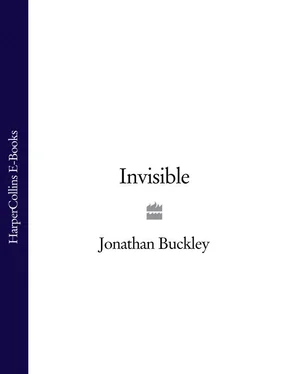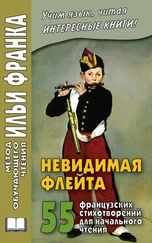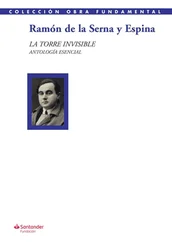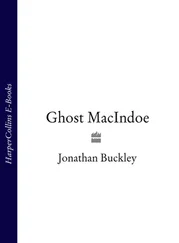1 ...7 8 9 11 12 13 ...22 ‘Ah, your sister. I see. I had wondered. Sister or cousin, I thought. There’s a resemblance.’
‘Poor girl.’
‘So your visit to the Oak –?’
‘Filial duty, partly,’ Mr Morton replies, addressing the earth at his feet. ‘A family reunion.’
‘I see, I see.’
Another taxi is coming up the drive; Mr Morton turns to track its progress to the porch. ‘Rarely satisfactory, family gatherings, don’t you find?’
‘I don’t think I’m in a position to comment.’
‘You have no family?’ he asks bluntly.
‘Not much of one. The parents have long gone. An aunt in Rhyl. That’s all for the older generation.’
‘And are you married, Mr Caldecott?’
‘Not any more.’
‘Oh. I’m sorry.’
‘Quite all right. I’m thoroughly divorced. And you?’
‘No wife. Father, mother, sister, a phalanx of aunts and uncles, but no wife.’
‘I see,’ he says. They stand a yard apart, both facing the portentous expanse of slate-green cloud, as though they were awaiting together the appearance of something in the sky. ‘Is the room to your liking?’
‘Very comfortable,’ says Mr Morton.
‘Good.’
‘Positively sumptuous.’
‘Good.’
Mr Morton takes a deep, relishing breath. ‘Very tranquil here,’ he observes.
‘It used to be quieter.’
‘Yes?’
‘Before the bypass was cut. When I first came here you could hear owls across the valley. Not any more.’
‘Believe me, this is tranquil compared with where I live,’ says Mr Morton, and no sooner has he said it than the tiara girl and three of her friends come out of the hotel, laughing raucously. He smiles towards the porch, shrugging his shoulders. ‘Goodnight, Mr Caldecott.’
‘Goodnight. Sleep well,’ he replies, as Mr Morton strides off, plainly not in need of assistance. He waits until Mr Morton is inside, then follows.
A tinny arpeggio announces that a message is waiting. ‘Get next unread message,’ Edward states to the microphone. ‘Speak all,’ he orders, and the machine dictates:
Dear Mister Morton,
Thank you for your message. I tried to phone you last night but you were not home. You must buy a cellphone, or I will buy it for you. You are the only person in the world who will not have one.
I am sorry about the trouble with Mike. I did not like the look of him: he has a silly pattern on his arm, one of those swirly things that is meant to make you look like a Maori or something, and he thinks he’s a man for ladies, it is obvious – he does a Hey baybee thing with his eyes, but his eyes are too small and close together and they are not a nice colour – yellow-brown, like the skin of a potato.
So what is there to tell you? The trouble between my parents is ending. There is still a strange atmosphere between them, but the trouble is ending and now I know the reason for it. It is a good story and I will write it for you, but not now. I am too tired. Tomorrow.
Other news: Pierluigi is not any more with Laura. She is forgotten now. There is a new girlfriend, called Graziana – Graziana Vitelleschi. The same family name as a bishop of Recanati from a long time ago. He was a very famous man. It is not the same family, I am sure. Luigi met her in a shop in Macerata, in a shoe shop. That is funny, yes? You, me and a shoe shop; Pierluigi, Graziana and a shoe shop. She works for a lawyer in Macerata – she is his secretary. He also has a new car – a new old car, because it is older than Pierluigi. A rare Alfa Romeo, he says. It has horrible leather seats, greeny-white, like milk that has been in the sun too long. But he is in love with it, almost as much as he is in love with Graziana.
This morning we have azure over most of the sky and white clouds dotted on the horizon, tiny small clouds, you could not hide a house in any of them. It would be good here, Edward, for both of us. You must come with me. You must. You must.
I keep thinking of things I should have said in my interview. There is a clever way of saying this. A special phrase, in French. What is it? Today we will be at my aunt’s house – she is ill again. But I will find some time to write the story for you. I hope you get some quietness today. I am very sleepy, so this is my ending. Baci, baci, baci. Your Pavolini.
A faint vibration, a low quiet thrumming, obtrudes into Edward’s consciousness. He hears it, at first, as water flowing through pipes: it is the sound that one hears when a heating system starts up and hot water begins to fill the radiators. Emerging from sleep, he recalls what time of year it is, and in the same instant he detects a smaller, sharper sound inside the murmur, a ticking inside the vibration. The source of the ticking is to his left, from where a wave of cooler air now passes, followed by a smothered boom of thunder. He goes to the window. Placing a palm on the glass, he feels the pulse of the rain. He pulls the window up and wipes his fingers across the slick wet paint of the frame. Again there is thunder, weaker than before, like a noise from a far-off quarry. He waits, and eventually there is one last boom, an expiring groan, so feeble it barely breaks through the sound of the rain. The horizon shrinks back to the margin defined by the spattering of water on the sill, then a piercing flourish of birdsong makes a point in space come into being, close to the building, within the garden. A pause follows, and a trill of high notes, a whistled baroque embellishment, identical to the first, straight ahead of him, no more than twenty yards away. A third trill receives an answering song: the same notes, in a new sequence. From a deeper recess of the garden comes a different call, a chirrup which rouses three or four kindred voices in a single tree or bush, down to the right, and this small chorus in turn stirs another, of the same species, somewhere behind it, and soon the garden is a fountain of birdsongs.
He puts on yesterday’s clothes and goes out into the corridor, into silence. With creeping steps he walks to the gallery. At the table near the top of the stairs he stops to ascertain what stands on it. His hands bump into a block of stone, on which a stone head is supported, a head with a swarm of minuscule furrows on its cheeks and a narrow nose and high brow crowned with short curls. The eyelids are smooth as cowries and half-lowered, and below the high collar there’s a medal or a badge of some sort. A general or a prince, he surmises, giving the bearded marble face a parting caress. Descending the stairs he becomes aware of rain drumming softly overhead, on a wide svkylight, he assumes. He steps down onto tiles and crosses the enormous hall, passing close to a clock he had not noticed before. Sensing the imprint of something sizeable on the air in front of him, he raises his arms and strikes a pedestal, with a long-leafed plant atop it. He steps aside, and five paces onward he touches the wall, which he follows to find the glass doors. They do not budge when he pushes them, but where they meet the floor he finds a metal plate with a countersunk bolt that slides easily upward, and at the top there is another, and then one door is free.
He stands in the shelter of the porch, his hands braced on a coarse stone column. Though the sun must be up, the coolness of night persists and the air has the cleansing scent of night-time. The conversation of the birds is ending; the rain is louder than it was. Water gargles in a drainpipe near the porch and the gravel driveway hisses, like air leaking from an inner tube that is almost flat. He leaves the porch and walks towards the garden, making a cowl of his jacket. A path of uneven stones departs from the gravel, flanked by leaves that scrape lightly under the impact of the pattering raindrops. Rhododendron, he guesses, and confirms his guess by touch. He reaches a junction of the path, where the rhododendron ceases. Following a track of bricks that veers off to the right, he comes to a spot where the rain is suddenly quieter. He stops and pulls the jacket down to listen. On both sides of the path he discerns a whispering that is the sound of water on a wide area of grass. He continues along the bricks until he comes to a smoothly paved area, encircled by sibilant shrubs. The rain is forming puddles here, but there is also a body of water high up, at the level of his head. His hands, groping, find a broad stone bowl that is fringed with slime. The shower is rapidly becoming heavier: the surface of the water in the bowl is burbling now, and the foliage of a nearby tree, a high tree, has begun to seethe. On the paving stones the rain raises a roar like a ceiling fan revolving at speed. It is a downpour now, but he does not move. Feeling the cold moss on his fingertips, and the cold water dribbling across his scalp, and the cold wet fabric on his chest and thighs, he senses the boundaries of his body, the contours of his invisible body, the dimensions of himself. All around him the garden is defined by tones and textures of sound, a continuum of sounds that give to the place in which he stands a continuous depth, a cohesion that the world presents to him infrequently. Avidly he listens, standing at the water bowl like a pilgrim with his hand on the foot of a miraculous statue.
Читать дальше











